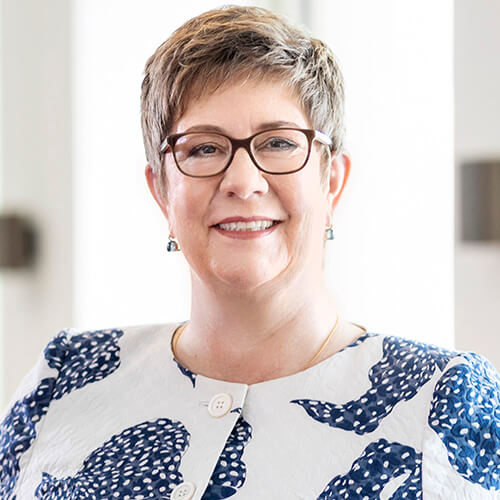“CFOs that aren’t able to keep up with the demands of sustainability may have a difficult time remaining relevant.”

Once again, the CFO’s job description is being rewritten. Most companies have defined the position with a singular emphasis on measuring, managing, and reporting traditional elements of financial value. Now, they’re increasingly tasking CFOs with various responsibilities that support their sustainability goals. Some CFOs welcome this widening of their remit, seeing it as a natural extension of their focus on long-term value and performance. Others still tell us they see environmental, social, and governance (ESG) factors as unrelated to financial performance—and well outside their purview. As one CFO quipped, “None of this is going to help us sell more or get better prices.”
Yet we’d argue that CFO leadership of sustainability initiatives is crucial for long-term value creation—as well as for ESG objectives. It starts with fundamentals: many CFOs are already fielding questions from investors, and most companies can expect to face a barrage of reporting and compliance requirements in the coming years. Here is where they can build trust among stakeholders, when supported by the Finance function, with its well-established ability to manage information. In addition, Finance has a host of tools—for forecasting, budgeting, allocation, and score-carding, to name a few—that it can use to bring sustainability factors into every business process and every decision about value creation. How else to provide a value-forward perspective, for example, on climate-related physical and transition risk? Or understand the impact and opportunities of green taxes and incentives? Or deliver reporting and materiality assessments that investors and other stakeholders can trust? If companies are to find the right balance between fulfilling short-term performance requirements and capturing longer-term opportunities related to sustainability, the CFO’s leadership is indispensable.
What does that leadership role for the CFO look like? The answer will vary from company to company. In part, it will depend on what the CEO and board of directors ask from the CFO and how responsibilities are shared across existing functions. The answer also depends on how the company aligns its ESG and business strategies to create sustainable value. At companies where sustainability initiatives are limited to the requirements of legal and regulatory compliance, the CFO’s role may include only formal accounting and reporting duties. But at companies where sustainability is a defining element of strategy, the CFO’s ecosystem-wide network of relationships, stewardship of a company’s financial data, and oversight of its systems of data collection make CFOs one of the natural owners of a wider, sustainability-focused organization. Since companies are likely to change their sustainability stances over time, most CFOs will find that their realm of responsibility evolves as well.
In our view, CFOs who lead on sustainability need to play four interconnected roles. These are familiar to many CFOs, but all four roles are being reshaped by new demands:
Strategic visionary who understands—and guides—the trade-offs among people, planet, and profit, bringing the longer-term risks and opportunities of sustainability to bear on strategy and the allocation of resources against it
Transformative catalyst who can align a company’s strategy, organization, and culture behind a common sustainability agenda
Collaborative integrator who knows how to build networks among business units, suppliers, vendors, and other stakeholders to uphold a commitment to sustainability that includes both natural and social capital
- Grounded communicator who has the data and cross-functional understanding to present a credible business case, grounded in shareholder value, for a company’s sustainability program.
Strategic visionary
The scope of the CFO’s role has been expanding for decades, from its traditional focus on finance, with an emphasis on preserving value, to a more visionary focus that encompasses future value creation. With sustainability gaining importance to companies, the CFO’s value-creation mandate calls for a new way of thinking and making decisions—one that uses sustainability information to guide choices about how to deliver strong performance for investors. Working with the CEO and governing board, today’s CFOs are integral to the development of a sustainable business model, bringing financial and nonfinancial data to bear on a company’s strategic goals, its resource and capital allocation, and its measures of long- and short-term performance.
“As the effects of climate change increasingly weigh on a company’s facilities, supply chains, and operations—and ultimately its profits—the value of investing in a successful sustainability approach will dwarf the value of any costs avoided by delay.”
Traditional discussions of performance and accounting are often backward-looking. They quantify, report, and assure what has already occurred, with various levels of detail and amounts of controls. But strategic CFOs in an era defined by climate change, among other sustainability pressures, must also look forward. They must be able to distill, from myriad compliance and performance measures, the relative few that will have the most material impact on a company’s strategy, business operations, products, and services and how they align with stakeholders’ expectations. That means answering a host of questions when making decisions about such matters as resource allocation, long-term capital buys, potential M&A targets, or any large investment. What is a company’s carbon intensity forecast? How accurate is it? How is it being measured? What new environmental taxes might be coming along? What competitive advantages might be gained—or risks incurred—by making one investment over another? What sustainability performance indicators are requested by funders or investors? And which interventions in operations will have the biggest impact on decarbonization, social sustainability, or nature?
Consider a simplified example of a capital purchase allocation. Presented with three assets and enough capital to fund two, historically a company would fund those expected to earn the biggest returns above and beyond a hurdle rate. Today, companies that have net-zero commitments or that anticipate regulation also need to apply a rigorous approach to integrating carbon metrics and other nonfinancial impacts into their investment decisions.
At one European multinational, the Finance team seeks to factor a carbon budget and other sustainability targets into those calculations as well. Recognizing the “cost” of carbon—whether characterized in terms of kilograms of carbon dioxide equivalent (CO2e) or in terms of monetary value over a project’s lifetime—ensures a more transparent conversation around financial value and carbon emissions. From there, the strategic calculus of any given project can include the cost of buying offsets, setting an internal carbon price, or even incorporating some measure of emissions into a performance bonus.
In bringing sustainability factors into business decisions, CFOs must also pay attention to the specific priorities of each region where their organization has a presence. In Asia, for example, the United Nations’ Sustainable Development Goals have identified both greater developmental needs than in other regions and greater susceptibility to climate risk. CFOs there need to consider how to be ambitious about decarbonization in a way that is also considerate of local communities, whose interests may differ from those of communities in other regions. CFOs must clearly communicate the potential physical climate impacts on the business at a local level under different scenarios, along with the company’s response to both physical and transition risks.
Transformative catalyst
At some companies, sustainability is still managed at a functional level, often with limited resources. But finding success in evolving ecosystems and value pools will require paying more attention to how companies interact with the world and the communities around them. As a result, many companies are realizing that sustainability is an enterprise-scale issue requiring specific people, processes, and technology to gauge and report the impact of sustainability factors on a business—such as the impact of climate change on its supply chain—or even a business’s impact on employees, customers, and the environment. Often, what’s needed is a sizable, systematic organizational change, if not a wholesale sustainability transformation.
CFOs may be the natural catalysts for such efforts. As stewards of most companies’ data and analytical resources, they have a broad view of the technology, systems, infrastructure, architecture, and tools that have already been built. Often with the support of an ESG controller, they are positioned well to provide the data to support concrete goals, establish initiatives to deliver on those goals, monitor progress, ensure accountability, and reward continuous improvement—much as they do for financial performance.
As a practical first step, companies need to identify what problems they’re trying to solve—and what people, processes, and technologies they need to solve them.
Upskilling people to meet the demands of sustainability
A successful transformation requires that strategy, structure, and culture be in sync, working seamlessly together. This means that the strategy needs to be operationalized throughout the organization and that measures of sustainability performance need to be integrated into management reporting and control systems—and often into the remuneration of leadership.
Much of this depends on the knowledge and skills of a company’s staff. For example, staff members need to understand not just what to do, but also why and how. Sustainability knowledge needs to be embedded in people’s everyday activities, so it becomes “just the way you do things.” Moving the workforce from where it is today to become sustainability-conscious is not a simple endeavor. We’ve seen companies struggle with the transition internally, as employees become familiar with the level of internal controls required by a CFO. Companies also continue to wrestle with compounding external demands that influence their ability to become sustainable organizations.
At the European multinational mentioned above, few of the more junior people understood the company’s sustainability strategy at even a basic level, let alone technical concepts like Scope 1, 2, and 3 emissions. In response, the Finance and Sustainability teams undertook a focused effort to manage internal stakeholders, bringing in a core group of senior people at different stages to conduct steering groups, one-on-one conversations, and training sessions. Their efforts built widespread support across the workforce, giving staff the confidence to embrace net-zero commitments and work toward them.
Existing technology can enable the process
The CFOs who are furthest along on sustainability are looking at their existing technology architecture to see where ESG data and controls can be integrated into their overall governance, risk, and compliance tools. They’re reviewing how their sign-offs and certifications can be integrated into established reporting processes. Working with the broader Finance and IT functions, they’re also reexamining enterprise technologies to see where they can use what they already have for other purposes, where there’s likely to be a gap, and where they’ll need a best-in-class solution. From there, they’ll need to start laying out a plan for where to go next.
“There’s no one-stop shop for sustainability reporting. Until we get to the point where holistic solutions can capture sustainability data and compile it into something like a P&L, companies will need to rely on a combination of existing and new technologies. Everybody has a piece of the solution, and CFOs need to pull it all together.”
Take, for example, one global pharmaceutical concern. Like many companies, this one had a highly manual process for collecting, calculating, and generating reports from sustainability data. Performance dashboards were often siloed, and there was no enterprise-wide, executive view of performance. After convening a series of stakeholder workshops, the CFO was able to articulate a sustainability reporting ambition for the company, define standards for governance, and establish point-specific control processes. The company then deployed in-house technologies to automate data collection and analysis and accelerate its sustainability reporting capability.
The expected improvements are profound. Formerly, the company could review manually collected Scope 1 and 2 emissions once a year. The new systems—once fully implemented—will allow it to do so monthly. The company will also be able to consider completeness, in terms of how many facilities reported in a given month, and to compare actual emissions to the overall target for the year. And it will be able to drill into more specific details—to identify which facilities are the biggest emitters, for example, and which managers are responsible for them.
Collaborative integrator
Sustainability-focused CFOs have, in our view, two fundamental mandates. They should be able to quantify and codify ESG performance and risks in a way comparable to financial performance. And they should be able to bring sustainability data to discussions of strategy as a way of fostering a sustainable, value-creating business model. A number of tactical objectives can help.
Tactical objectives to meet a sustainability-focused CFO’s fundamental mandates
The sustainability-integration practices of leading CFOs exemplify a change that’s needed more broadly across companies: bringing together people from different functions to work together on sustainability initiatives. As the CEO of a multinational brewery noted, with regard to reinforcing that company’s sustainable use of energy and raw materials, “If I don’t make this everyone’s responsibility, we’re not going to be successful.”
Consider the challenge of building trust in a company’s sustainability disclosures. Businesses face growing demand for rigor and data quality in sustainability reporting. This demand can feel overwhelming in the absence of well-defined reporting and assurance requirements, formal processes and controls, and accountable roles and responsibilities. CFOs can build trust in the data—and make the task more manageable—by promoting collaboration and collective responsibility among various teams that provide it. At a European manufacturing company, the Sustainability Reporting team is part of Finance. It relies on a multidisciplinary cast of climate specialists, auditors, and sustainability assurance specialists working together to ensure that the company’s sustainability data can hold up to the same level of scrutiny as its financial data.
CFOs can readily facilitate collaboration for another reason: Finance has relationships with everyone across an organization—not to mention its network of suppliers, dealers, and customers—because everyone has a budget. These relationships proved useful at a European company when it came time to reduce the emissions associated with its products. Since a generalist sustainability team wouldn’t have known each product well enough to find solutions, the company chose to use its Finance staff as change agents instead. By pushing a carbon budget down into the organization alongside the financial budget, the Finance team prompted colleagues in production to recommend myriad ways of reducing carbon, such as innovating on product design, implementing adaptive manufacturing processes, and using different sources of energy. The nudge from Finance made for effective bottom-up solutions because the production staff knew each and every product better than anyone else.
Future-focused CFOs will have highly strategic, complex, and enterprise-wide roles. They will knit together and have shared responsibility with risk management, purchasing, human resources, operations, and tax. For example, the CFO will work with sales and production teams to help quantify impact in both financial and nonfinancial terms, using data collection protocols and reporting processes that already exist.
Isn’t that the CSO’s job?
If measuring, managing, and reporting on nonfinancial measures of sustainability strikes you as an improbable fit for a role explicitly defined by finance, you aren’t alone. We frequently encounter CFOs who express surprise—or perhaps dismay—at the notion that they might take the lead on sustainability. Isn’t that the role of the chief sustainability officer?
In some cases, they might be right. There’s a growing class of highly empowered CSOs whose role looks very much like one we might otherwise have attributed to a CFO—with regard to compliance, but also strategy, risk, finance, transformation, and human resources. The best among them are either part of or report into the C-suite—or otherwise have a direct line of contact to the board of directors. And as investors clamor for more transparency into how a company will meet its climate goals, for example, some are even communicating with investors and joining earnings calls.
Yet, such CSOs are few and far between. Few companies even have a formal CSO role—and many of those that do have relegated them organizationally to a level well below the C-suite or directed their focus toward corporate social responsibility. Ultimately, effectively addressing the disparate demands of sustainability requires collaboration between CSOs and CFOs.
Grounded communicator
Communicating and managing shareholder expectations have long been within a strategic CFO’s ambit. As a class, CFOs are no strangers to adapting to changes in regulatory requirements and reporting guidelines, and many of the demands of sustainability on CFOs are similar. The job is still about telling a company’s story in a fact-based way—only now it includes sustainability performance as well as financial performance. A grounded sustainability communicator needs to understand and be able to explain a company’s current sustainability strategy and performance, which involves assessing which data is material, aggregating and collecting data, and reporting and assuring measures of performance.
“Anticipated regulation is an important trigger for companies to act, but it’s not the only one. Most organizations are also driven by changes in market demand and stakeholder interests—including those of employees.”
This task goes well beyond meeting the statutory requirements for tax authorities and regulators. It’s also about communicating with other audiences, which calls for a different, and altogether more complicated, level of reporting. Vendors and suppliers, for example, often want specialized sustainability data on the carbon footprint of products so they can measure the emissions of particular business units, track their progress toward emissions targets, and reflect it in performance-related rewards. Then there are investors and lenders, who have been among the most vocal consumers of sustainability information. More than two-thirds of investors surveyed agreed that it’s important for companies to disclose the relevance of sustainability factors to their business model—as well as the monetary value of the effects their actions have on the environment and society. As of yet, nearly nine in ten say they think corporate reporting contains too many unsupported claims.
CFOs must be able to communicate sustainability-related goals and performance to multiple audiences
Ratings agencies make up another important constituency, because of their influence with capital providers. Nearly half of investors report relying on sustainability scores from ratings agencies to manage risks and opportunities. Some asset managers incorporate the findings of ratings providers into their capital allocation decisions. And some investors and lenders ignore the top-level rating entirely, but still use ratings providers as a source of data that goes into their own internal or proprietary rating.
Obviously, different ratings providers look at different aspects of sustainability, though in general, they consider companies’ resilience to the long-term impact of ESG trends. More importantly, by definition only a certain proportion of companies can be included in each level of ratings—in a kind of forced ranking, with, say, only 5% of companies rated triple-A and 15% double-A, and so on. So it’s increasingly important for companies to be transparent about their activities, to support higher ratings, and justify a lower cost of capital from the markets and lenders.
If you’re a CFO, the challenge is to make sure you understand the landscape of audiences and their data needs. Talk directly with key investors, keeping in mind how they’re using various ratings. Bring detailed checklists to the conversation to provide more transparency behind the public, often narrow and opaque industry-specific criteria that ratings providers rely on. And be prepared to discuss methodology. Overly general disclosures that ignore the methodology or the factors it incorporates are seldom a good way to woo investors—or other stakeholders.
Looking ahead
CFOs who adapt their roles to new modes of creating value have a great opportunity to lead their companies in a rapidly reconfiguring world. Breaking the dynamics of sustainability into concrete business considerations, embedding sustainability knowledge in regular processes and procedures, and sharing financial and nonfinancial data and insights within the company and with its stakeholders build transparency, momentum—and trust. Certainly, it won’t be easy. CFOs will need the patience to deal with ambiguity, the vision to navigate through uncertainty, and the courage to make change happen. Those who do will find new ways of creating value.
Want to take “How CFOs further value creation by leading on sustainability” with you?
Six paradoxes of leadership
PwC has identified six urgent paradoxes which are becoming increasingly important for leaders to navigate. Executives must be a globally-minded localist, for example, and a tech-savvy humanist. The paradoxes impact one other, and all need to be balanced simultaneously. To truly differentiate yourself as a leader, you must learn how to comfortably inhabit both elements of each paradox.

Renate de Lange-Snijders
EMEA ESG Leader, Partner, PwC Netherlands

Brigham McNaughton
Partner, PwC US

Kevin O'Connell
ESG leader for Global Asset and Wealth Management, Partner, PwC US

Nadja Picard
Global Reporting Leader, Partner, PwC Germany
Contact us
Contact us

Partner, Global Sustainability Leader, PwC United Kingdom
Tel: +44 (0)7710 157908

Partner, Global Sustainability Markets Leader, PwC Netherlands
Tel: +31 (0)62 248 81 40




Partner, Investor Reporting and Sustainability Platform Leader, PwC Switzerland
Tel: +41 58 792 25 37



Partner, Net Zero Transformation Leader, PwC United Kingdom
Tel: +44 (0)7715 704870


Fang Eu-Lin
Partner, Sustainability and Climate Change Practice Leader, PwC Singapore
Tel: +65 9817 8213















